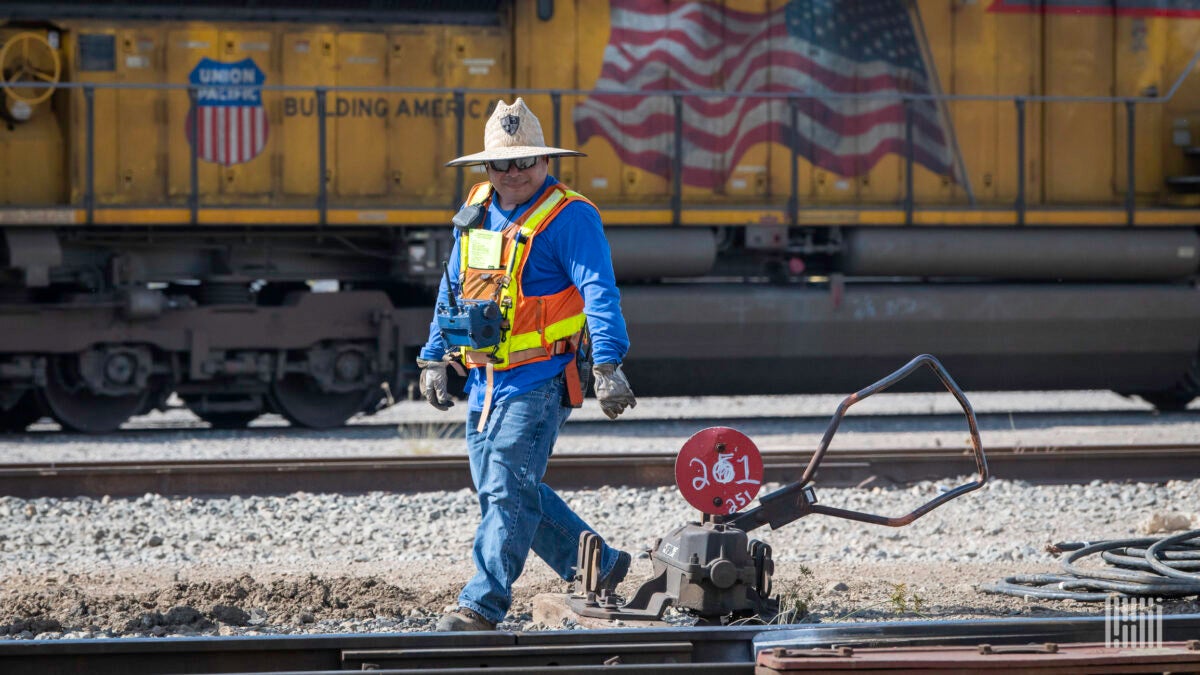A joint resolution by U.S. lawmakers aimed at ending the threat of a strike or lockout provides little incentive for avoiding a debilitating shutdown of the nation’s railroads, according to a former rail industry legal consultant.
Introduced in the Senate on Monday by Roger Wicker, R.-Miss., and Richard Burr, R-N.C., the legislation would adopt the recommendations issued in August by the Presidential Emergency Board (PEB) that were meant to be used as the foundation for a new contract. Such action is supported by major business and shipper groups, including the U.S. Chamber of Commerce and the Fertilizer Institute.
But getting a divided Congress to quickly pass such settlement legislation offers little chance of resolving the dispute, according to John Brennan III, a former senior counsel for the Union Pacific Railroad.
“Congress is in the unfortunate position of resolving a potential strike on very difficult terms, and what Wicker and Burr are proposing is a cramdown,” Brennan told FreightWaves.
Brennan pointed out that when the last rail strikes occurred in the early 1990s, Congress passed settlement resolutions within 24 hours. But the partisan divide in Congress today, along with the upcoming midterm elections, could make it difficult to pass settlement legislation before midnight on Thursday when a work stoppage would be permitted under the law.
“Expedited passage of this legislation requires unanimous consent, and one senator or congressman on either side of the aisle looking to gain political points will be able to hold this up — the possibility for theatrics is endless,” Brennan said.
Another path Congress could have chosen — simply extending the status quo for a certain period — may have offered more chance for an eventual settlement, although this also likely would have received pushback from labor-supportive Democrats, said Brennan, who is also a former chief of staff for the House of Representatives’ railroads subcommittee.
Delaying a possible strike through congressional action was also opposed by the American Trucking Associations.
“A possible strike or lockout in October or November is arguably worse than one next week — although any disruption will cost the nation billions of dollars of lost productivity,” said ATA President and CEO Chris Spear this past week. “Moreover, our members and every other business in America will have to maintain and update contingency plans unless the rail matter is resolved expeditiously.”
Instead, legislation requiring final-offer arbitration — also known as “baseball” arbitration because of its use in resolving major league contract salary disputes — may have offered the best path toward a fast settlement, according to Brennan.
“Decision-making power would be delegated to experienced, independent arbitrators who would choose between a best and final offer from either management or labor — a very scary proposition for both sides, and therefore an incentive to force them to the middle and settle,” Brennan said. “The legislation could help to avoid political controversy with the upcoming election looming.”
The National Railway Labor Conference, which is negotiating on behalf of railroad management, confirmed Tuesday that nine of the 12 unions involved in the contract talks have now come to a tentative agreement based on the PEB’s recommendations.
However, the two unions that together make up roughly half of the rank-and-file workers covered under the contract — the International Association of Sheet Metal, Air, Rail and Transportation Workers/Transportation Division, and the Brotherhood of Locomotive Engineers and Trainmen — have yet to settle with management.











Art
There is no guarantee that the rank and file will ratify what their leaders have agreed to, especially BLET – who have the biggest non-monetary grievances
Kevin Nussbaum
Reagan would know what to do.
Art
Ronald Reagan is dead, and few people under 40 years old will even remember anything about him.
Mike Friese
That does not change the fact that Ronald Reagan would, and did know what to do.
Stephen Koehler
What would Reagan do? Nationalize the railroads? Put soldiers on the trains to run them? This isn’t PATCO and the Air Traffic Controllers. The railroad workers have real grievances, and we ignore them at our own peril. Many of the reforms they are demanding are real world accommodations that many of us take for granted such as realistic work and vacation schedules, (many railroad workers are on call 24/7 and have been taken for granted by management). They get no real weekends and are forced to work unrealistic schedules with no accommodation for family or personal time. The pandemic taught them that they are essential and not replaceable cogs. Management and carriers need to understand that the fundamental dynamic between the worker and the employer has changed. They know they are essential, and management must change with the times. Those that ignore that fundamental change do so at their own peril as well.
Mike A
The two unions holding back are the operating employees, those that actually man the trains.
Their major grievance has to do with time off a long standing perk of operators being able to take a day off when it was needed. This issue during a period of manning issues for the railroads has caused friction and need addressing.
John Licht
Congress should railroad accountable for failing its common carrier obligations.
Darrel Russelburg
Strike strike strike pl3ase strike
Darrel Russelburg
Strike strike strike
Ron
Strike some more
Androo
They will either strike or they will strike the strike